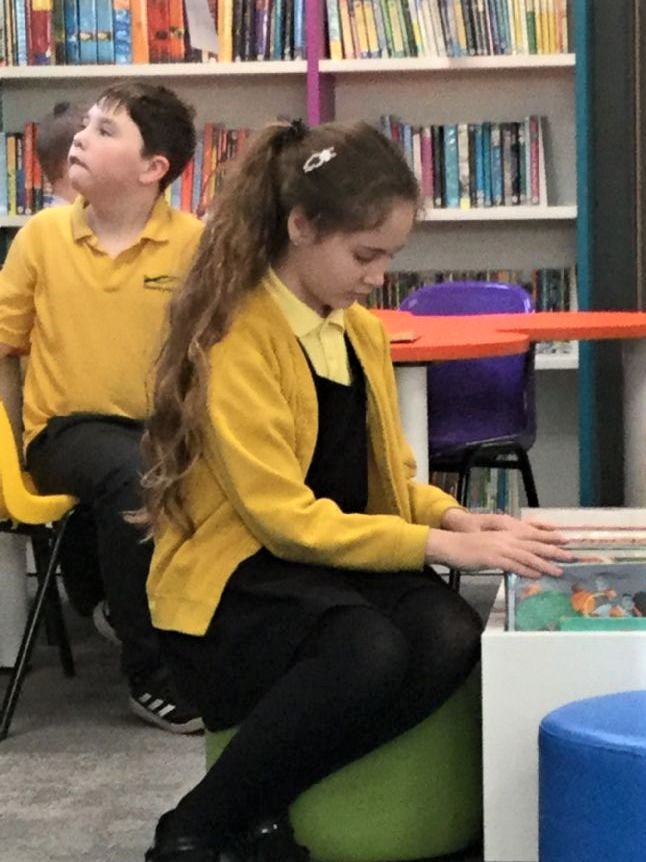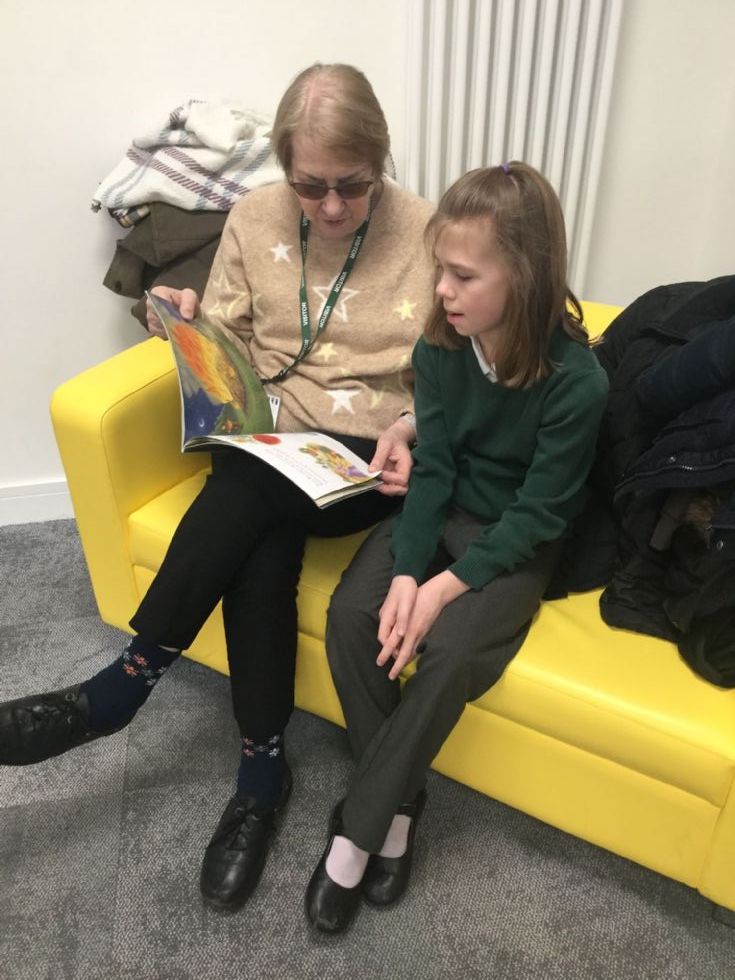Development of Reading & Writing
Synthetic phonics is a way of teaching children to read. This begins with learning that sounds are represented by written letters. During their Read Write Inc sessions, the children learn to read the 40+ sounds. Followed by how to blend the sounds together to make and read words. Children learn to blend these sounds into words by using Fred Talk through oral rehearsal.

Once our pupils are reading Read Write Inc. books fluently, they can then begin to access our Oxford Reading Tree Scheme of books to continue to develop their reading and comprehension skills throughout school.
Mark Making is the beginning of our journey into writing for a number of our pupils. As well as enabling a child to learn to write, making marks can benefit a child physically and also help to develop their imagination and creative skills. As part of the systematic teaching of English, we begin to introduce them to Talk for Writing. Talk for Writing is an engaging teaching framework developed by Pie Corbett. It enables children to imitate the language they need for a particular text type orally, before reading and analysing it and then innovating their own version. It begins with the use of sensory stories, drama, imitating and reciting a story. This immerses the children in the language of the story, which they begin to internalise to develop their own language and storytelling skills. This is followed by a process of innovation and then invention, where pupils can modify the story and invent their own unique creations.

